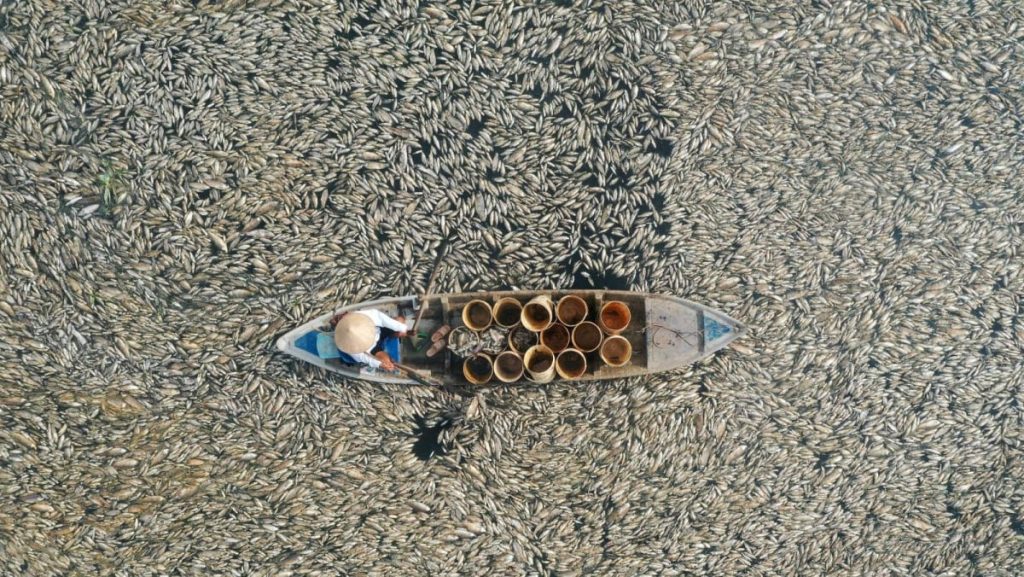ectricity usage has soared due to the extreme heat – Vietnam is in the grip of a scorching summer. The hot weather has caused the water levels in the Tri An reservoir to drop significantly, leading to a decrease in oxygen levels in the water. This lack of oxygen has resulted in the death of hundreds of thousands of fish in the reservoir.
Locals and media reports are pointing fingers at both the heatwave and the mismanagement of the reservoir as the causes of the fish deaths. The brutal heatwave, which has caused water levels to drop and oxygen levels to decrease, is seen as a primary factor in the mass die-off. However, the management of the reservoir also plays a role, as the authorities responsible for overseeing the lake failed to take adequate measures to prevent the fish deaths. This lack of action has led to anger and frustration among local residents who rely on the reservoir for their livelihoods.
The fish die-off in the Tri An reservoir in Dong Nai province is just one example of the impact of the ongoing heatwave in Southeast Asia. Schools have been forced to close early, and electricity usage has soared as people struggle to keep cool in the sweltering temperatures. The extreme heat has also had devastating effects on wildlife, with reports of mass die-offs of fish and other aquatic species in various bodies of water across the region. Authorities are scrambling to find solutions to address the effects of the heatwave and prevent further damage to the environment.
In response to the fish deaths in the Tri An reservoir, local authorities have launched an investigation to determine the cause of the mass die-off. They have promised to take action to address the situation and prevent similar incidents in the future. However, many residents remain skeptical of the government’s ability to effectively manage the reservoir and protect the environment. The fish deaths have highlighted the challenges faced by communities in the region as they grapple with the effects of climate change and environmental degradation.
The mass die-off of fish in the Tri An reservoir has had a significant impact on local residents who rely on fishing for their livelihoods. Many fishermen have been left without an income as a result of the fish deaths, further exacerbating the economic hardships already faced by the community. In addition to the financial losses, the fish deaths have also raised concerns about the long-term health of the reservoir and the wider ecosystem. Addressing these issues will require coordinated efforts from all stakeholders, including the government, local communities, and environmental organizations.
As the heatwave continues to grip Southeast Asia, the fish deaths in the Tri An reservoir serve as a stark reminder of the urgent need to address the impacts of climate change and protect the region’s natural resources. The ongoing heatwave is a wake-up call for governments and individuals to take action to mitigate the effects of rising temperatures and prevent further damage to the environment. The fish deaths in Dong Nai province are a tragic consequence of the failure to address the challenges posed by climate change, and highlight the need for immediate and decisive action to protect the planet’s ecosystems and ensure the well-being of all living beings.













